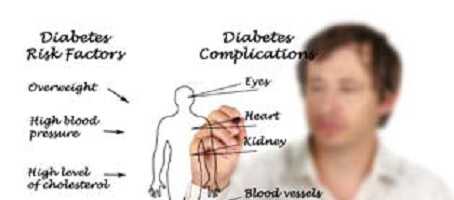More and more children are showing early signs of type 1 diabetes, and the quality of care available to them varies significantly based on where they live.
This is according to a report from the National Paediatric Diabetes Audit, which also indicated that 21 per cent of people with type 1 diabetes over the age of 12 show signs of diabetic complications.
In 2013-2014, 26,867 0-25 year olds were diagnosed with type 1 diabetes. The year before, that figure was 25,221, indicating a six per cent increase in just one year.
Perhaps the most troubling part of the report was the finding that quality of care varies considerably in different regions. Children in economically deprived areas of the UK are less likely to have carefully managed blood glucose levels.
Moreover, white people tend to have better control than other ethnicities, further indicating the influence of economic factors on blood glucose control.
That said, diabetes care is improving on the whole. It is only the discrepancies in care quality between rich and poor that is increasing.
Everyone with type 1 diabetes over the age of 12 should receive seven major health checks every year. The report discovered that only 16 per cent received all of the health checks.
More positively, the percentage of 0-25 year olds with “excellent” HbA1c levels has risen: 18.4 per cent, compared to 15.8 per cent last year.
Dr. Justin Warner, the audit’s clinical lead, said: “On the one hand the picture is positive; the quality of care for children and young people with diabetes is improving and we’re getting better at ensuring care processes are met.
“Yet the challenge we face is also growing, with more children being diagnosed with diabetes and some displaying early signs of potentially serious long term health problems.
Sarah Johnso, director of policy and communications at the Juvenile Diabetes Research Foundation (JDRF), said: “Although we’re pleased to see an increase in the number of children receiving in-range blood glucose control, we’re alarmed by the numbers showing signs of complications at such a young age.
“Improvements in treatment and early interventions to prevent these complications need to be prioritised urgently by the NHS, and healthcare professionals must be given the help and resources they need to help their patients manage a serious, life-long condition.”
What's new on the forum? ⭐️
Get our free newsletters
Stay up to date with the latest news, research and breakthroughs.


